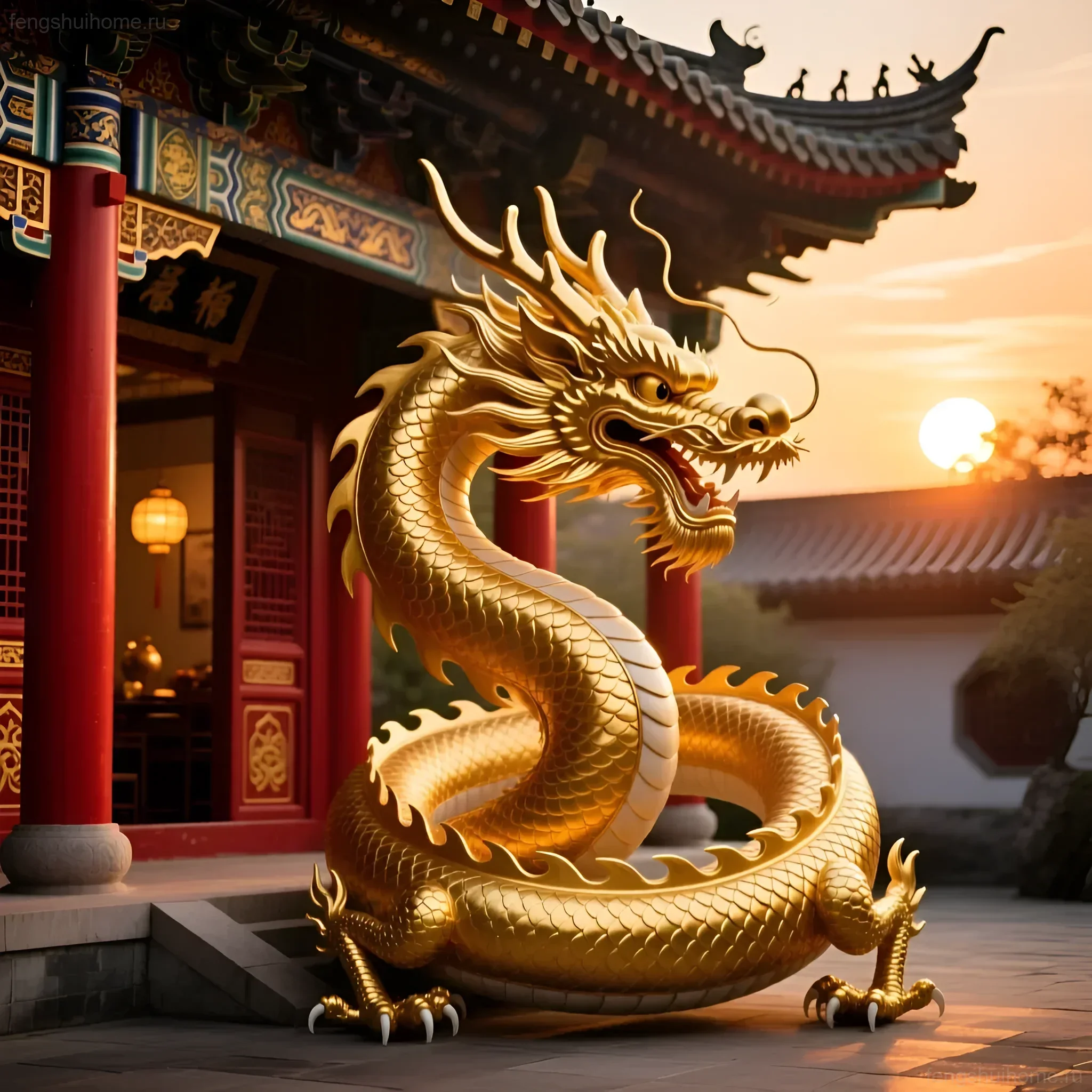The dragon, one of the four celestial animals in Chinese metaphysics, is perhaps the most powerful and revered symbol in Feng Shui. It embodies pure Yang energy, associated with imperial authority, wisdom, prosperity, and protection. The correct use of this mythical creature can fundamentally change the energetic landscape of a dwelling, attracting luck, career advancement, and financial stability. However, like any potent activator, the Dragon requires respectful and strict handling. Feng Shui experts emphasize that it is not enough to simply place a figurine; one must understand its nature, element, and optimal location to achieve maximum harmony and the flow of beneficial Qi energy.
The Dragon in Feng Shui: A Symbol of Power and Well-being in Your Home
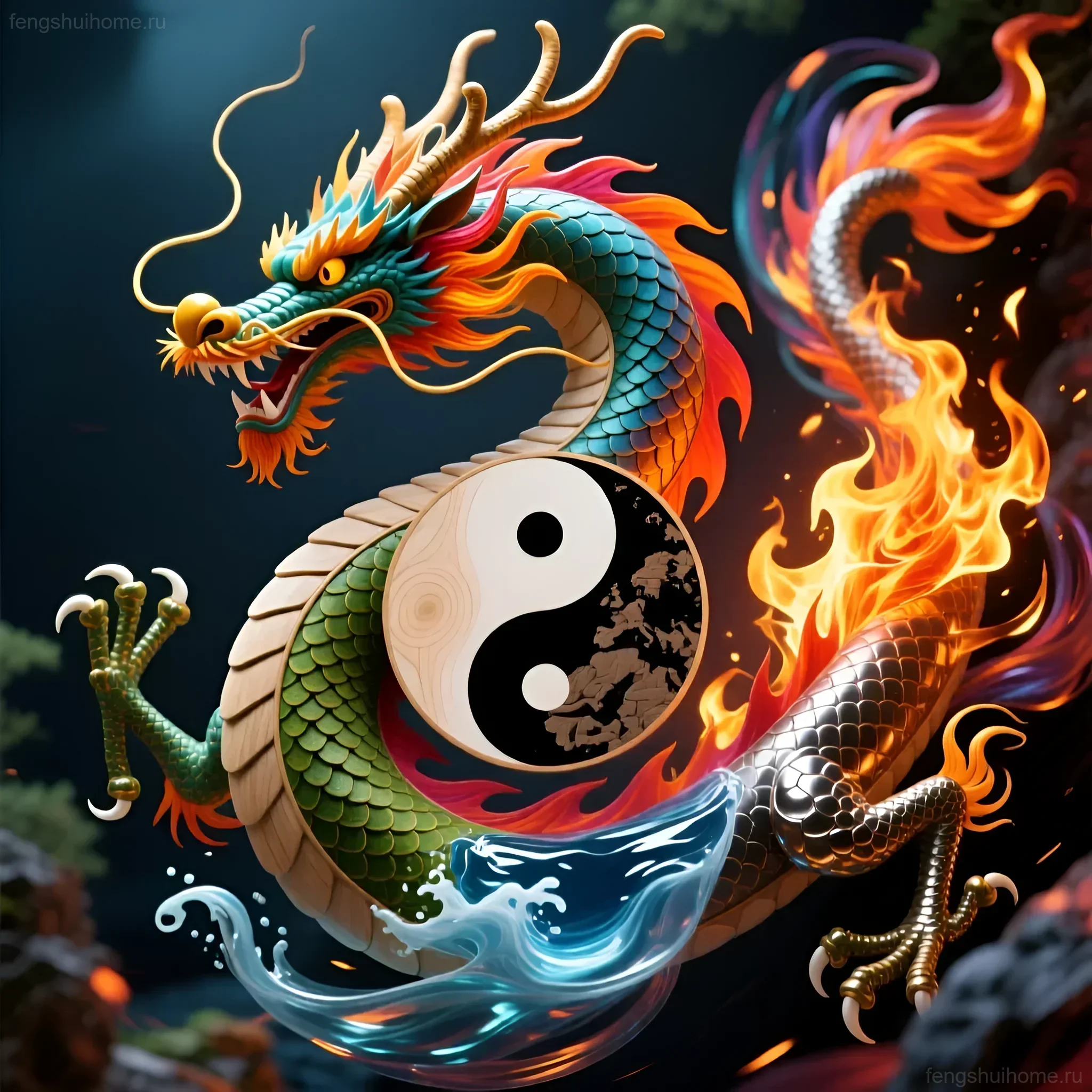
The Chinese dragon (Lóng) is not just a mythical creature; it is the quintessence of cosmic power, combining traits of nine different animals (tiger’s eyes, deer’s antlers, snake’s body, etc.). In Feng Shui, it serves as a powerful catalyst for positive changes and possesses the following key functions:
- Wealth Generation: The dragon is often depicted with a pearl (the Pearl of Wisdom or the Pearl of Wealth), symbolizing accumulated knowledge and material possessions.
- Protection: It repels evil spirits and negative Sha Qi energy, creating a powerful energetic shield around the home.
- Support for the Head of the Family: The symbol enhances the authority and influence of the man in the household, promoting career growth and business success.
- Source of Qi: The dragon attracts celestial and terrestrial Qi, especially when placed in the East, its traditional habitat.
It is important to remember that the Dragon is an active symbol; its energy must be awakened and directed. Incorrect placement can lead to dominance and even aggression in the home, so strict adherence to Feng Shui rules is essential.
The Five Elements of the Dragon: How They Influence Home Energy
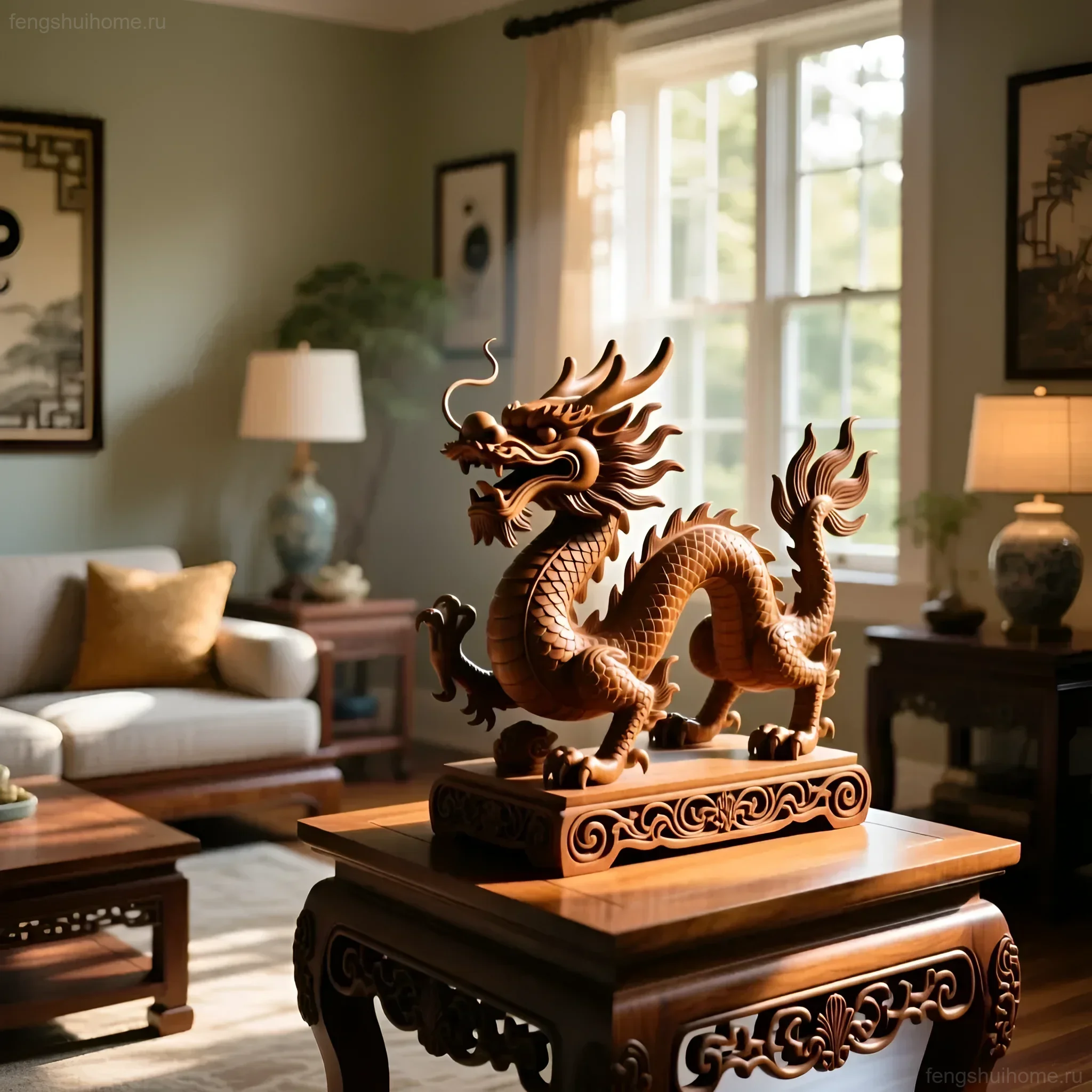
Dragons can be classified by the five elements of Wu Xing. The choice of element should correspond to the Bagua sector where it is intended to be placed, or to personal activation goals.
- Wood Dragon (Green):
- Sectors: East (Health and Family), Southeast (Wealth).
- Effect: Growth, development, new beginnings, improved health, family harmony.
- Fire Dragon (Red or Purple):
- Sector: South (Fame and Reputation).
- Effect: Enhanced recognition, passion, energy, acknowledgment, and active endeavors. Requires careful placement as it can be too aggressive.
- Earth Dragon (Brown or Yellow):
- Sectors: Center (Overall Harmony), Southwest (Relationships), Northeast (Knowledge).
- Effect: Stability, support, protection, strengthening of marriage and relationships, accumulation of knowledge.
- Metal Dragon (Gold, Silver, or White):
- Sectors: West (Children and Creativity), Northwest (Helpful People and Travel).
- Effect: Financial success, discipline, protection against losses, assistance from influential patrons. Ideal for business.
- Water Dragon (Blue or Black):
- Sector: North (Career).
- Effect: Increased cash flow, career advancement, flexibility, wisdom. Often used to attract “flowing” money.
Dragon Placement in the Home According to Feng Shui: Zones of Power and Taboos
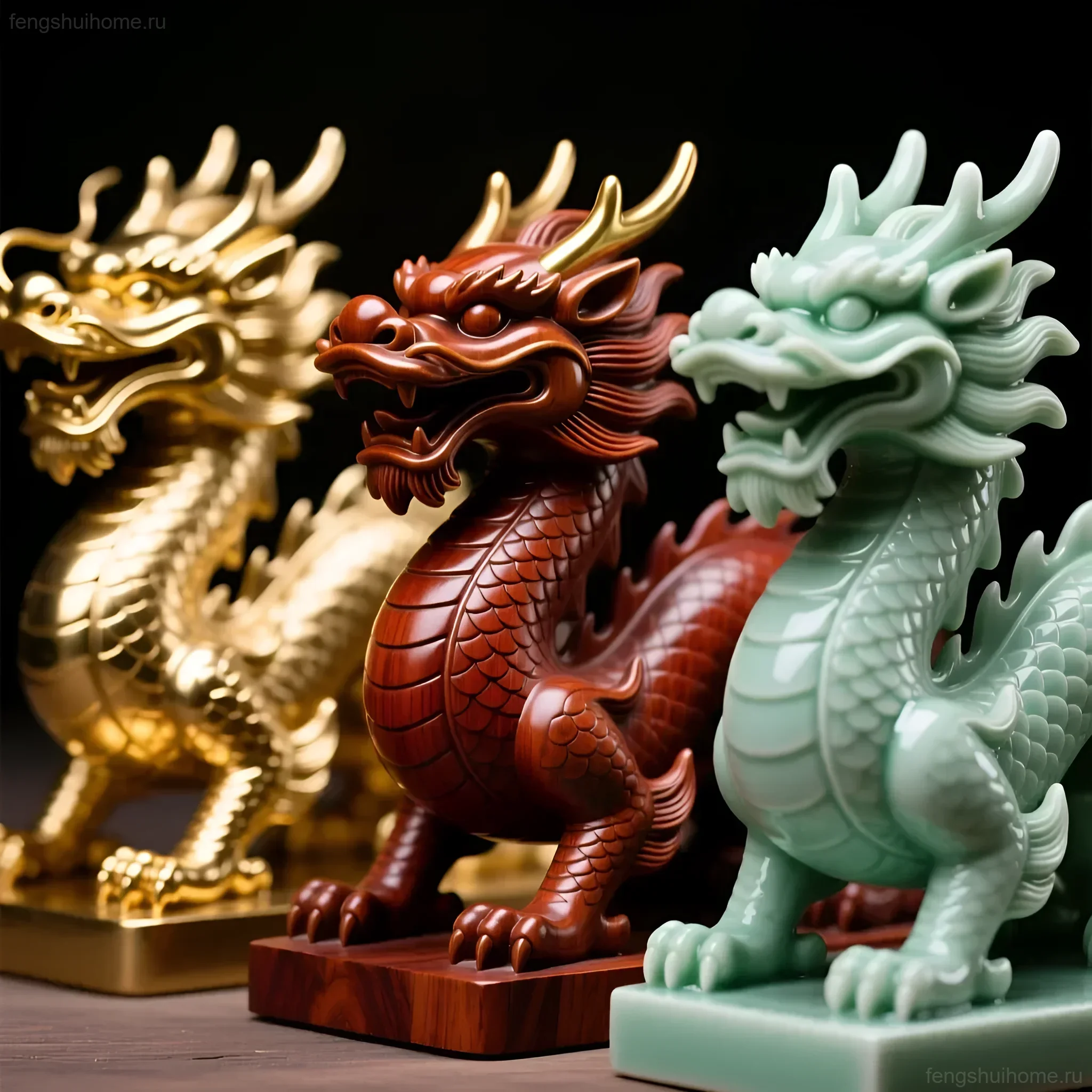
The key to successfully activating the Dragon’s energy is its correct positioning. The Dragon should feel respected and be in a dominant position, but without overwhelming the inhabitants.
Optimal Placement Zones
The most favorable zones for placing the Dragon symbol are:
- East (Health and Family Zone): This is the Dragon’s natural habitat. Placement here promotes good health, longevity, and harmony among family members.
- Southeast (Wealth Zone): Place the Dragon here to activate financial luck and the flow of monetary Qi. The Wood or Water Dragon is particularly effective.
- North (Career Zone): Ideal for offices or studies. The Water Dragon will aid in career advancement and closing profitable deals.
- Living Room or Hall: The Dragon should be visible and placed in a spacious area with abundant Yang energy.
Important Rule: The Dragon should always face inward towards the house, not out the window or door. If it faces outward, it signifies that it is taking your luck and wealth away.
Taboos and Restrictions for Placement
There are several places where placing a Dragon is strictly forbidden, as it can offend it or make its energy aggressive:
- Bedroom: The Dragon’s Yang energy is too active for a resting zone. It can cause insomnia, marital conflicts, or the Dragon’s dominance over spouses. Exception: small, inconspicuous images.
- Bathroom, Toilet, Storage Room: These areas are considered dirty or stagnant. Placing a Dragon here will lead to the loss of its power and the desecration of its energy.
- Below Eye Level: The Dragon is an imperial symbol. It should never be placed below the eye level of an adult, as this demonstrates disrespect.
- Opposite a Rabbit: According to Chinese astrology, the Dragon and the Rabbit (symbol of the East) can conflict. Do not place a Dragon figurine directly opposite a Rabbit figurine.
- Under Beams or on the Floor: This creates oppressive Sha energy, which will negatively affect the Dragon and, consequently, the luck of the home.
Dragon Materials, Color, and Pose: Choosing a Symbol for Specific Goals
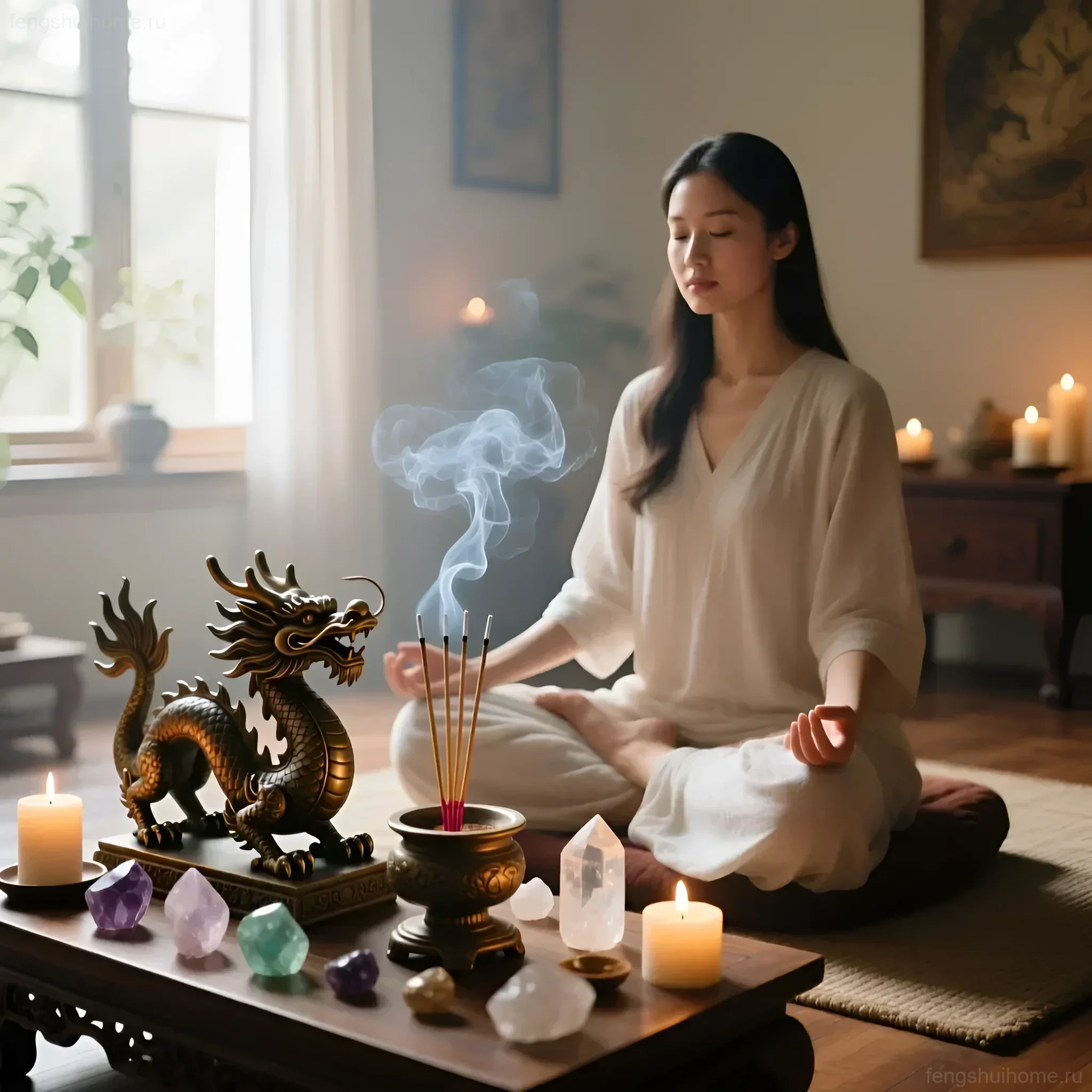
The choice of the Dragon’s physical embodiment should be conscious. The material and pose determine which specific energy it will activate.
Materials and Their Significance
- Jade or Nephrite: The most auspicious material. Associated with health, longevity, and imperial power. Ideal for the East zone.
- Metal (Bronze, Gold): Activates wealth, protection, and business success. Suitable for the Northwest and West.
- Ceramics or Clay: Provides stability and harmony. Ideal for the Center and Southwest.
- Crystal or Glass: Attracts harmony and clarity of thought. Used when a softer, less aggressive energy is required.
Poses and Number of Dragons
The Dragon’s pose is often an indicator of its intention:
1. Dragon with a Pearl (most common):
- Symbolizes wisdom, spiritual insight, and the protection of accumulated wealth. The pearl is either in its mouth or claws.
- Purpose: General prosperity and protection.
2. Dragon Ascending:
- Symbolizes career growth, rapid advancement, and ambition.
- Purpose: Success in work and business.
3. Pair of Dragons (Dragon and Phoenix):
- The Dragon (Yang) and the Phoenix (Yin) are an ideal union for the relationship zone (Southwest).
- Purpose: Strengthening marriage, family harmony, childbirth.
4. Nine Dragons:
- The number 9 is considered maximally complete and imperial. Nine Dragons activate the highest degree of luck, power, and wealth. Usually used in the form of paintings or reliefs.
Attention to Claws: The imperial Dragon has five claws. A four-clawed or three-clawed dragon (often used in Japan) has less power but is still considered auspicious.
Activating Dragon Energy: Rituals and Practices for Luck and Prosperity
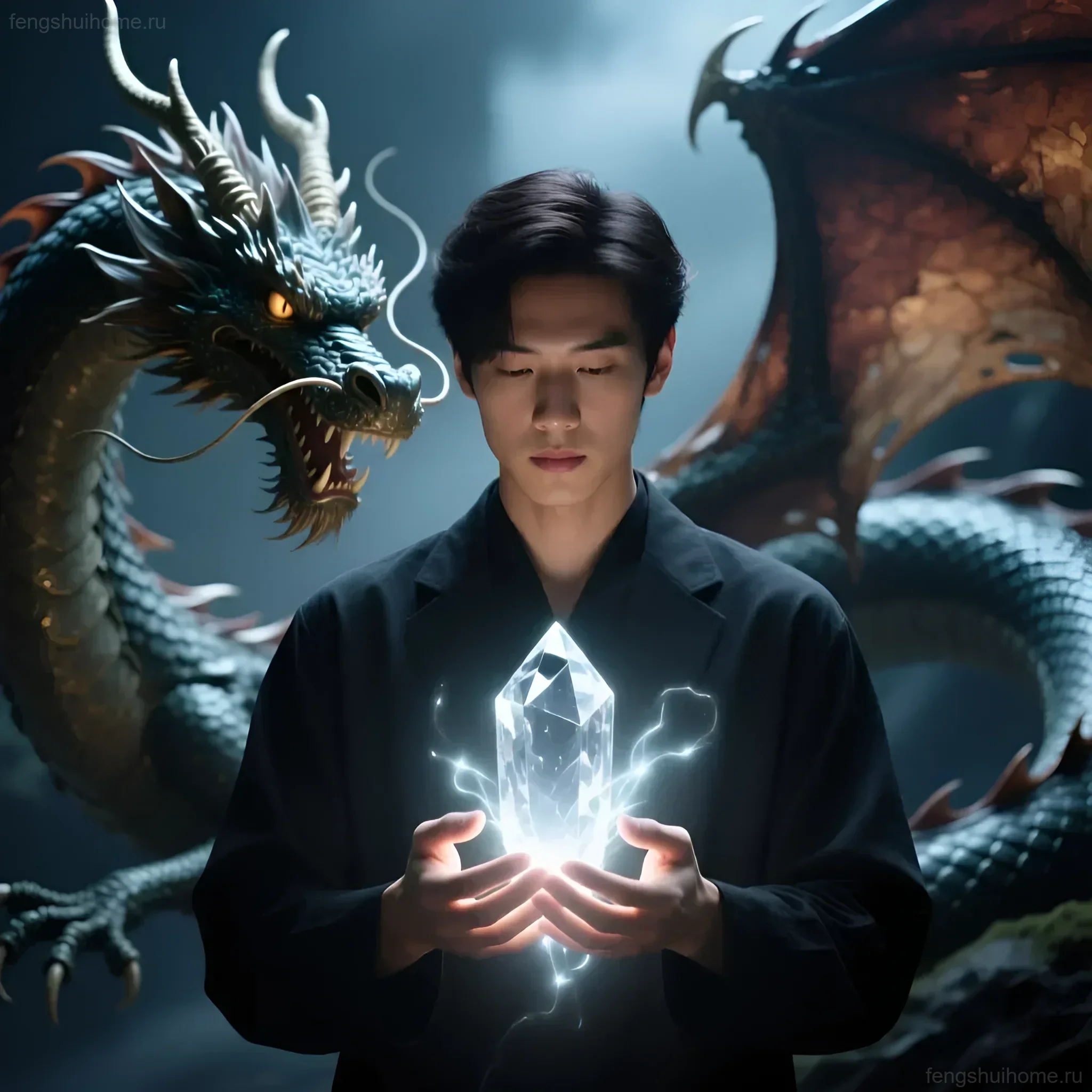
For the symbol to begin working, it must be “awakened.” An unactivated Dragon is just a decoration.
The “Eye Awakening” Ritual (Eye Dotting Ceremony)
This ritual, known as Dian Jing, is considered the most important for activation. It “breathes” life into the statue.
- Choosing the Time: Perform the activation on an auspicious day according to the Chinese calendar (best on a Dragon day or Dragon hour).
- Preparation: Cleanse the figurine. Place it in the chosen zone.
- The Ritual: Use a brush dipped in red paint or ink. Dot the Dragon’s eyes, as if opening them.
- Intention: At this moment, clearly state your wish or intention (wealth, protection, success).
Offerings and Maintaining Energy
- Water: Dragons are closely associated with water (they bring rain). There should always be clean, fresh water (not distilled) near the figurine. A vase of water or a small fountain enhances its energy.
- Cleanliness: The Dragon’s location should be impeccably clean and well-lit. Dust and clutter weaken its power.
- Respect: Do not place the Dragon in shadow or a corner where light does not reach. It should be the center of attention in its zone.
The Dragon and Personal Elements: How to Enhance Your Energy with the Symbol
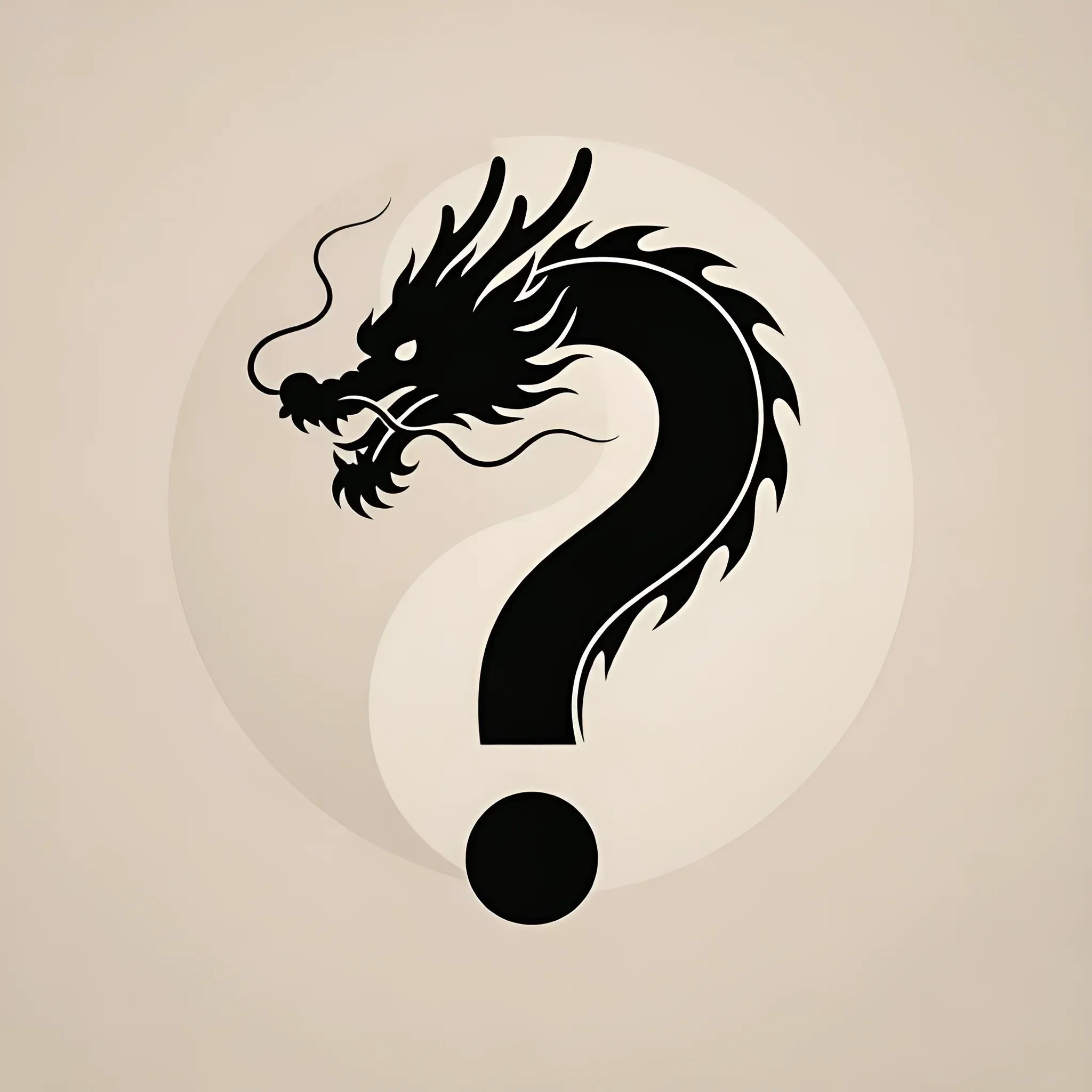
For the most effective use of the Dragon, experts recommend considering the personal element of the head of the household, or the person for whom the activation is being performed.
Determine your personal element by your birth year (or by the Ba Zi system) and choose a Dragon that either supports your element or corresponds to it:
- If your element is Water: Choose a Metal Dragon (Metal generates Water) or a Water Dragon. Avoid an Earth Dragon.
- If your element is Wood: A Water Dragon (Water nourishes Wood) or a Wood Dragon is ideal. Avoid a Metal Dragon.
- If your element is Fire: Look for a Wood Dragon (Wood feeds Fire) or a Fire Dragon.
- If your element is Earth: An Earth Dragon (Fire creates Earth) or an Earth Dragon is best.
- If your element is Metal: Choose an Earth Dragon (Earth generates Metal) or a Metal Dragon.
Example: If you are a Fire person and want to strengthen your career (North, Water), you should choose a Wood Dragon (green), which nourishes Fire and also harmonizes the Water energy in the sector.
FAQ: Answers to Frequently Asked Questions About the Dragon in Feng Shui
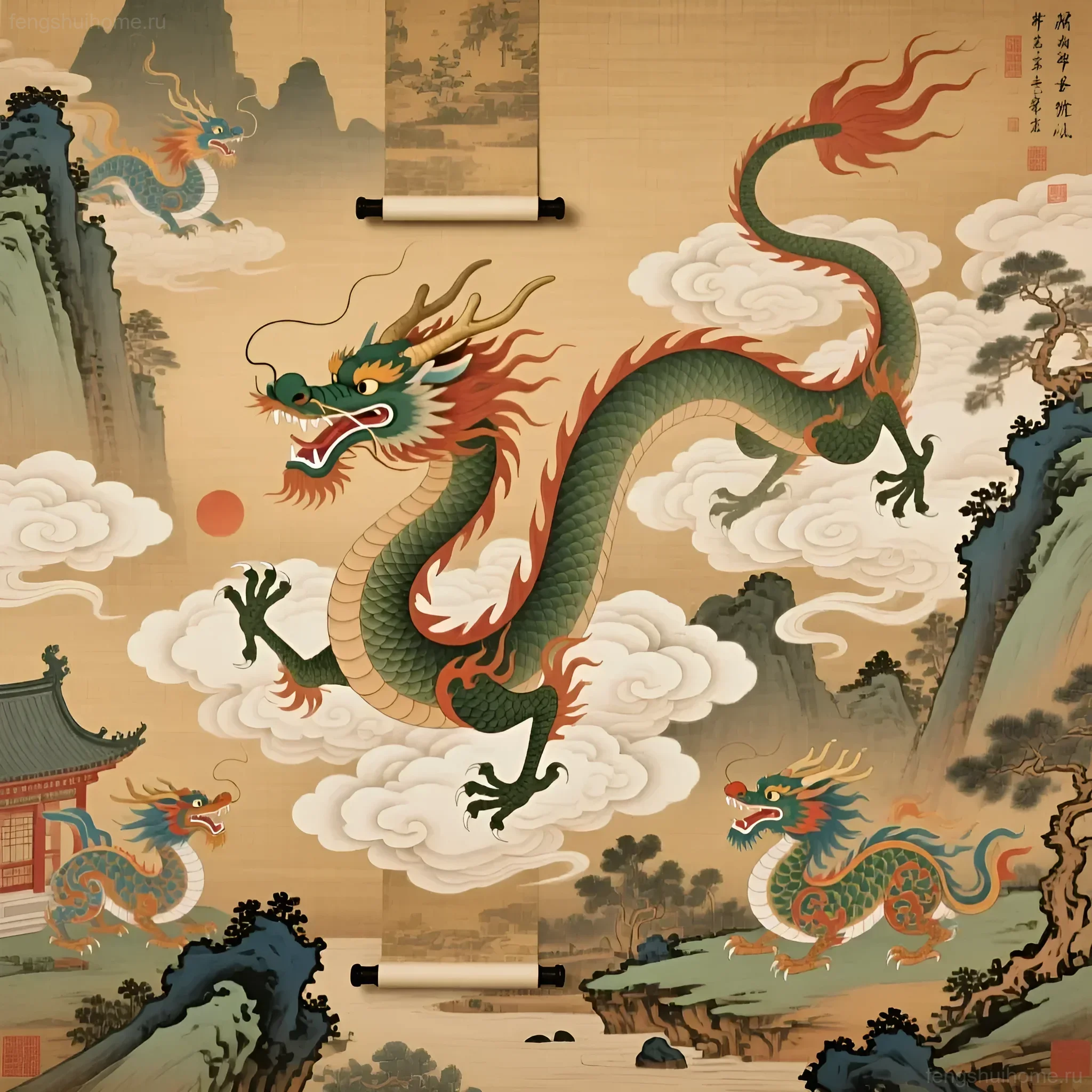
The Dragon symbol raises many questions, as it possesses immense power. Let’s clarify the most common ones:
1. How many dragons can I keep in my home?
Experts recommend limiting yourself to three or four Dragons. Four is the maximum number that can be effectively controlled by the energy of an ordinary home. Too many Dragons can lead to conflicts, dominance of Yang energy, and aggression in the family.
2. Can I place a Dragon near Tiger symbols?
In classical Feng Shui, the Dragon (green) and the Tiger (white) represent two sides of balance. If you use them together, the Dragon should always be higher than the Tiger or to its right (when viewed from inside the house). If the Tiger dominates, it can cause rivalry and conflicts.
3. What should I do if a Dragon figurine gets damaged?
A damaged or cracked Dragon figurine must be immediately removed from the house. A damaged symbol carries negative energy and can attract misfortune. It should be disposed of respectfully (e.g., buried in the ground if it is ceramic).
4. Do I need a Dragon if I was born in the Year of the Dragon?
Yes, it is even more auspicious. People born in the Year of the Dragon have a strong connection to this symbol. Activating a Dragon in their home will enhance their personal luck, authority, and vitality.
Interesting Facts About the Dragon in Feng Shui: Myths, Legends, and Historical Aspects
Understanding the cultural context of the Dragon helps deepen respect for this symbol and enhance its activation.
- Imperial Symbol: In Chinese history, only the emperor had the right to use the five-clawed Dragon. Violating this rule was punishable by death. This fact underscores its connection to supreme power and status.
- Master of Water: The Chinese Dragon, unlike Western fire-breathing dragons, is the master of water, rivers, lakes, and rain. This is precisely why placing water near its figurine is so important.
- “Dragon Veins”: In geographical Feng Shui (Landscape Feng Shui), mountain ranges and rivers are called “Dragon Veins” (Lóng Mài), through which vital Qi energy flows. The correct placement of buildings relative to these “veins” determines the luck of an entire region.
- Pearl of Wisdom: The pearl held by the Dragon represents not only wealth but also Cosmic Qi. A dragon chasing a pearl symbolizes the eternal quest for wisdom and truth.
Thus, the Dragon in Feng Shui is not just a decoration. It is a powerful, living tool for attracting supreme luck, protection, and prosperity. By applying the principles of choosing the element, material, and correct placement, one can awaken its power and direct it towards achieving the most ambitious goals in your home.
